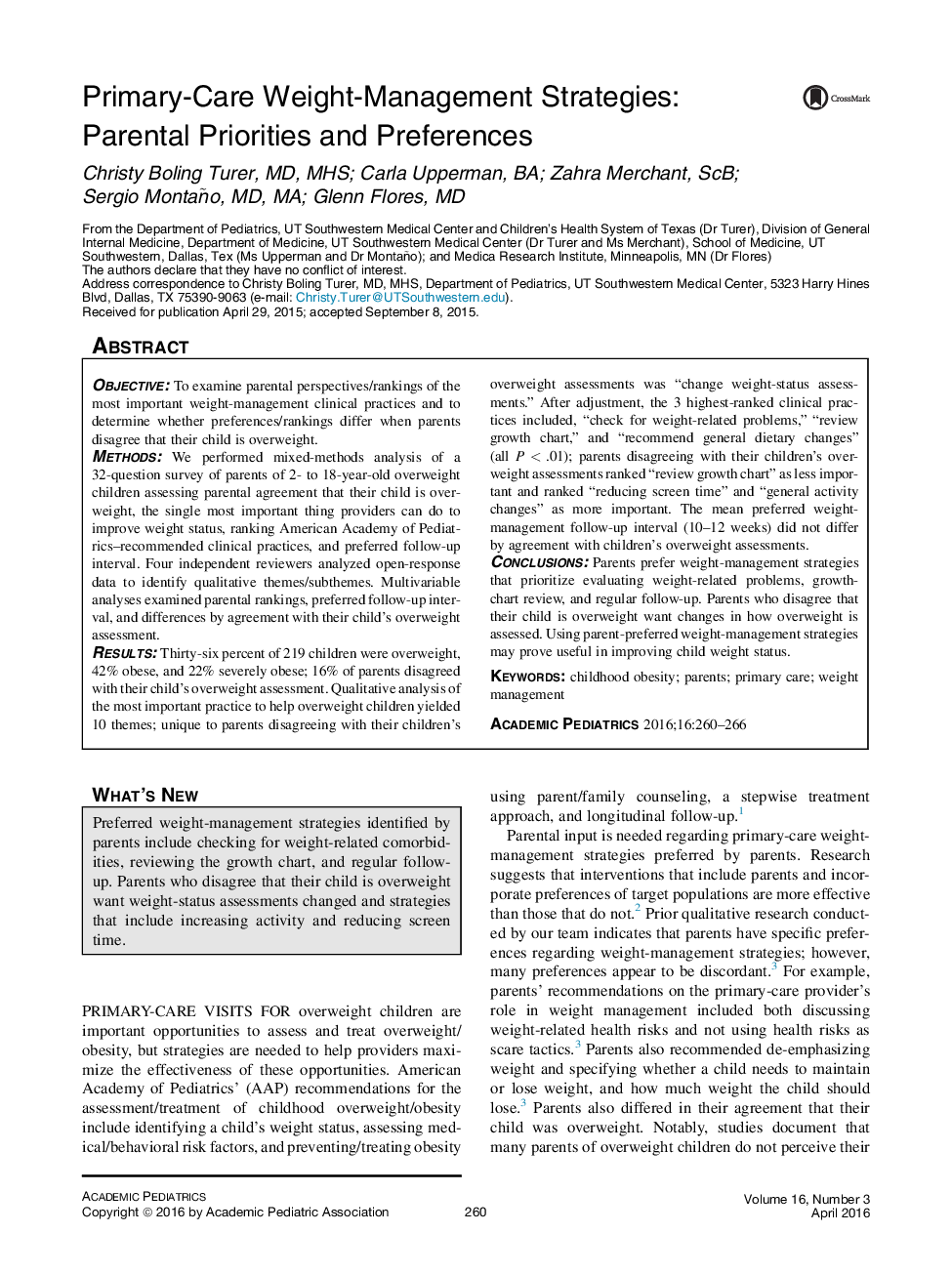| Article ID | Journal | Published Year | Pages | File Type |
|---|---|---|---|---|
| 4138964 | Academic Pediatrics | 2016 | 7 Pages |
ObjectiveTo examine parental perspectives/rankings of the most important weight-management clinical practices and to determine whether preferences/rankings differ when parents disagree that their child is overweight.MethodsWe performed mixed-methods analysis of a 32-question survey of parents of 2- to 18-year-old overweight children assessing parental agreement that their child is overweight, the single most important thing providers can do to improve weight status, ranking American Academy of Pediatrics–recommended clinical practices, and preferred follow-up interval. Four independent reviewers analyzed open-response data to identify qualitative themes/subthemes. Multivariable analyses examined parental rankings, preferred follow-up interval, and differences by agreement with their child's overweight assessment.ResultsThirty-six percent of 219 children were overweight, 42% obese, and 22% severely obese; 16% of parents disagreed with their child's overweight assessment. Qualitative analysis of the most important practice to help overweight children yielded 10 themes; unique to parents disagreeing with their children's overweight assessments was “change weight-status assessments.” After adjustment, the 3 highest-ranked clinical practices included, “check for weight-related problems,” “review growth chart,” and “recommend general dietary changes” (all P < .01); parents disagreeing with their children's overweight assessments ranked “review growth chart” as less important and ranked “reducing screen time” and “general activity changes” as more important. The mean preferred weight-management follow-up interval (10–12 weeks) did not differ by agreement with children's overweight assessments.ConclusionsParents prefer weight-management strategies that prioritize evaluating weight-related problems, growth-chart review, and regular follow-up. Parents who disagree that their child is overweight want changes in how overweight is assessed. Using parent-preferred weight-management strategies may prove useful in improving child weight status.
